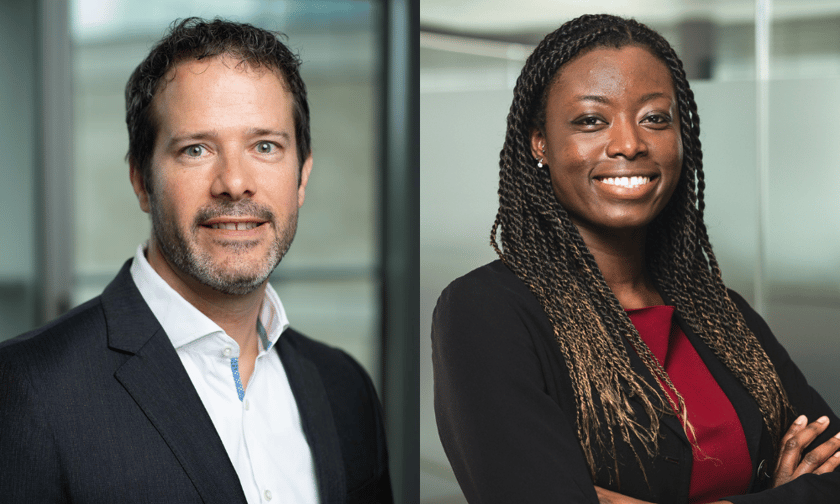

With International Women’s Day right around the corner, you’ll doubtless receive rhetoric from a host of employers, touting their “action points” and “strategic agendas” around diversity, equity and inclusion. DE&I it seems, is all the rage when it comes to theoretical business plans.
However, how many of those agendas are turning into action?
The insurance industry has unquestionably elevated its DE&I game in recent years – with gender pay gaps gradually closing and more women taking a seat a boardroom level. Yet still, in many instances there’s more talk than action – meaning it’s time to place the emphasis on the “how” and “why” rather than the “what” of DE&I discussions.
That’s a philosophy touted by CEO of Mercer UK, Benoit Hudon (pictured left).
“We undertake a number of actions to ensure we are representative of the communities we serve, not only from an internal diversity standpoint, but also because we recognise how this can help our clients achieve their business objectives,” he said. “As an employer with thousands of employees in the UK, there’s always a risk you lose sight really quickly of what matters and to think that representation numbers are the whole picture. It’s important to always remember that there’s diversity, but there’s also inclusion and equity there as well.”
To keep that understanding front of mind, he said, Mercer looks to enlist some of its colleagues on a purely voluntary basis to support the delivery of its strategic agenda – with DE&I being a crucial part of that. One of these business resource groups (BRGs) is Marsh McLennan’s MOSAIC which launched five months ago with the support of Hudon as sponsor and under the guidance of Yinka Olutola (pictured right) as co-chair – with the ambition of creating greater connections between the business and colleagues on the topic of race and ethnic diversity.
Olutola, senior compensation analyst at Mercer, highlighted that when she joined the business, she was drawn in by the opportunity presented to bring her whole and authentic self to work, something that hadn’t really happened in previous roles. As a Black woman, she said, diversity is a deeply important topic to her, both in the personal and professional aspects of her life. So, when she started at Mercer, she looked for every available opportunity to showcase that.
“I was directed to what was then called Mercer Embrace, which now forms part of the MOSAIC BRG,” she said. “One of the first things I did at Mercer Embrace was become part of our Black History Month initiative which involved working with colleagues from across Marsh McLennan. We all came together… to think about the events we could put on to showcase Black history.
“We knew we didn’t want it to be all about the usual suspects that get brought up in Black History Month, and focus on slavery and all the trauma around that. We also wanted to celebrate Black culture in recognition that it’s not a monolith at all. It’s beautiful and varied and there’s so many different experiences and cultures that we can celebrate.”
It was on the back of that success that the team questioned whether they should look to work together on a more permanent basis and continue to learn from each other.
“So, we said, let’s do this across Marsh McLennan and align to its corporate goals of working together and pushing the diversity agenda across the wider business by taking all our colleagues along with us,” she said. “That was the real driving force behind how MOSAIC came about – that we wanted to have a bigger impact together across Marsh McLennan.”
Hudson and Olutola both underscored how important they believe this being an entirely organic endeavour has been to MOSAIC’s success to date. Initiatives like these have to come from the ground up, Hudon said.
There was never a sense that this was something the BRG “had” to do, Olutola added.
“It’s great to see that within all these BRGs, colleagues can have a voice and it doesn’t matter how senior they are within the business,” she said. “I’ve been here less than two years and I’m a co-chair of a BRG. It’s just something that’s driven by how passionate you are. I think people recognise the passion others have around topics personal to them and it’s really hard not to want to support that and not to get involved.
“We want to make sure that, as a business, we’re practising what we preach and making sure we have the biggest impact possible across our communities.”
